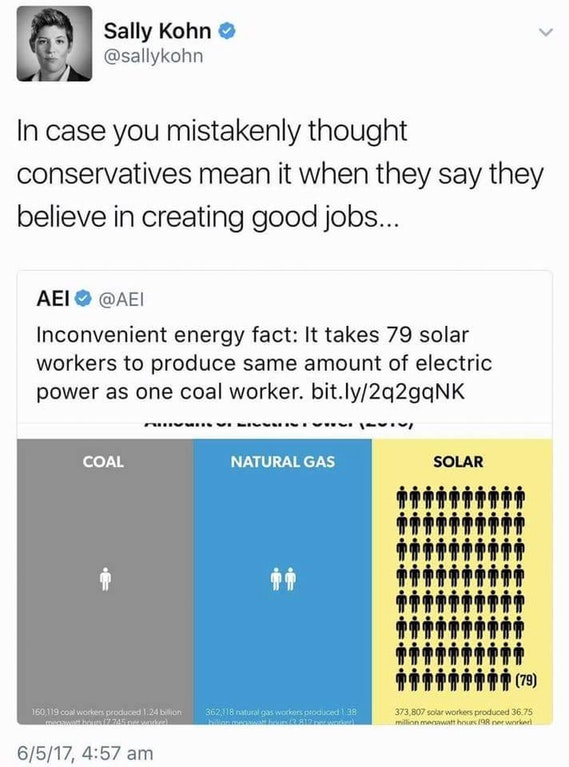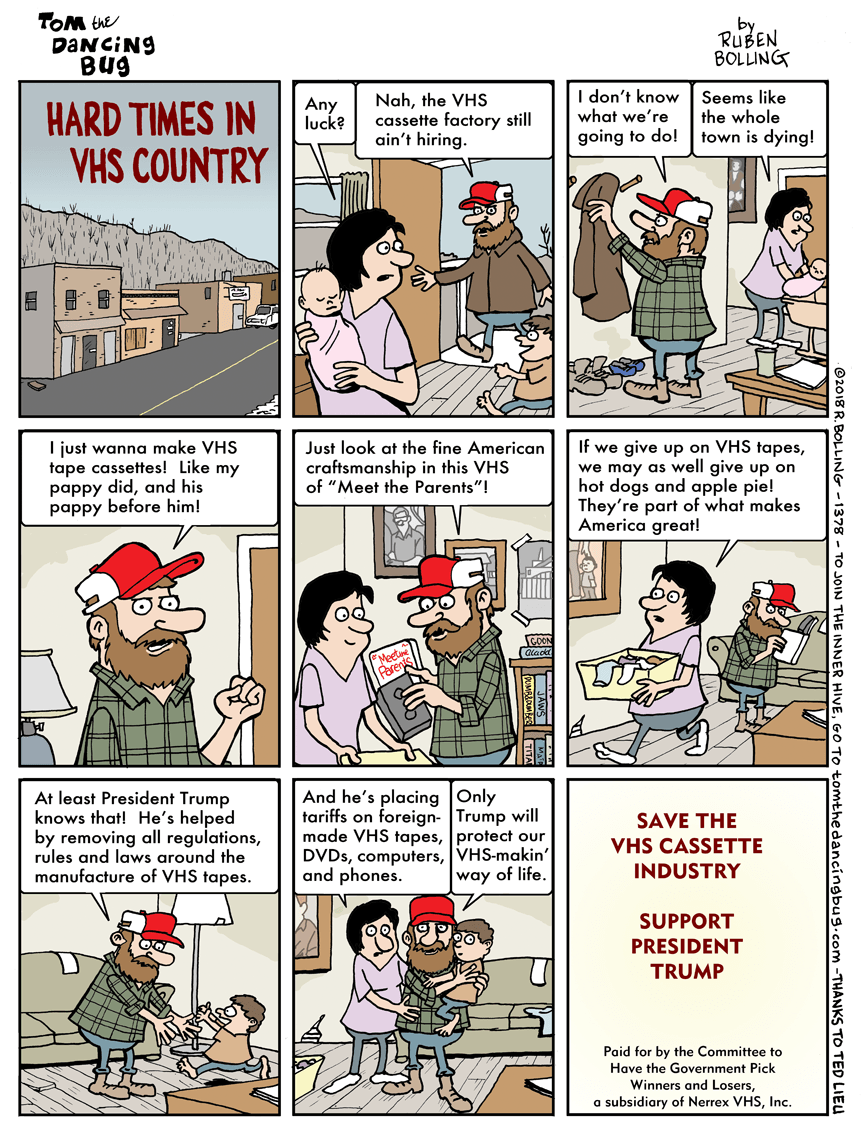This morning in Monaco, I moderated a panel for the Convention of Independent Financial Advisors on the implications of an “uber-ized” economy. In my introductory comments, I asserted that the best part of capitalism was “creative destruction.” Simply stated, we all benefit when entrepreneurs come up with products such as personal computers that make our lives better.
But I also pointed out that creative destruction was the most painful part of capitalism. Think, for example, about the people who used to work in the typewriter industry.
One of the speakers, Professor Philippe Silberzahn of the EMLYON Business School, cited another example. Kodak used to be one of the biggest and most profitable companies in America, but the digital camera (ironically, first invented by Kodak) set the firm into a death spiral. What was creative for the rest of us wound up causing destruction for the people who worked at Kodak and the investors who owned shares of Kodak.
It’s easy, as an armchair economist, to argue in favor of creative destruction. As explained in this video, this is why we are far richer than our ancestors. Even if our ancestors worked in the candle industry and were bankrupted and tossed out of work when the electric light bulb hit the market.
But armchair theorizing (even when accurate) doesn’t change the fact that change means temporary pain. And this is a political challenge. Especially since those who suffer are the “seen” and the beneficiaries often are “unseen.”
But none of that changes the fact that politicians should not intervene. Assuming, of course, the goal is long-run increases in living standards for everyone.
In a column for CapX, Tim Worstall elaborates on how we become richer when we produce more with less.
Warren Buffett tells us all that slashing jobs is just the capitalist way. …But Buffett is wrong. This isn’t the capitalist way at all. This is just the way that any and every economy should work. Whether communist, socialist, social democratic or capitalist, all economies will economise on inputs into a process.
That is what actually makes us richer. Buffett’s subsequent point – that “people live better when there is more output per capita” – is right. But that’s not specific to capitalism. …as Paul Krugman has pointed out, productivity isn’t everything but in the long run it’s pretty much everything. …Today, instead of everyone working in the fields, just 2 per cent of us do so. The other 98 per cent of the population are busing trying to sate some other human desire or want. And thus, we have the labour to run a health service, libraries, ballet companies, vital cat picture websites, manufacturing, ketchup plants and the like. Being economical with labour is the very thing that makes civilisation itself possible. … William Nordhaus has pointed out…entrepreneurs – for devising a new process which uses different or fewer inputs is the very definition of entrepreneurship – end up with some 3 per cent or so of the value they create. The remaining 97 per cent flows to the rest of us in the form of consumer surplus.
By the way, I’m not surprised that Buffett is wrong. He’s goofed before when venturing into public policy.
Tim closes with a very important point.
Not enough people realise that using fewer resources to do something makes us richer. And yes, human labour is just such a scarce resource that we wish to economise upon using. Perhaps if people understood this, they’d stop arguing that solar power is better than nuclear because it produces more jobs for the same amount of electricity produced.
And since we’re on that topic, here’s an item from Libertarian Reddit revealing a leftist who genuinely seems to think that the goal should be to produce less per unit of labor.

Sounds like Ms. Kohn should spend some time with this video.
But I like to be even-handed in my disdain for bad economics. Trump is a protectionist who wants to preserve certain jobs in certain industries.
Well, I don’t know if this artist is a left-wing Trump critic or right-wing Trump critic, but he’s right about the foolishness of trying to stop progress.

But this brings me back to where I started. The VHS worker was a victim, just as the workers at Kodak were victims.
It’s the inevitable consequence of progress. But if we try to stop progress, we all lose in the long run. The best way to help workers and investors who suffer from creative destruction is to have pro-growth policies so that if you’re in a disrupted sector, you have plenty of opportunities to quickly rebound.

